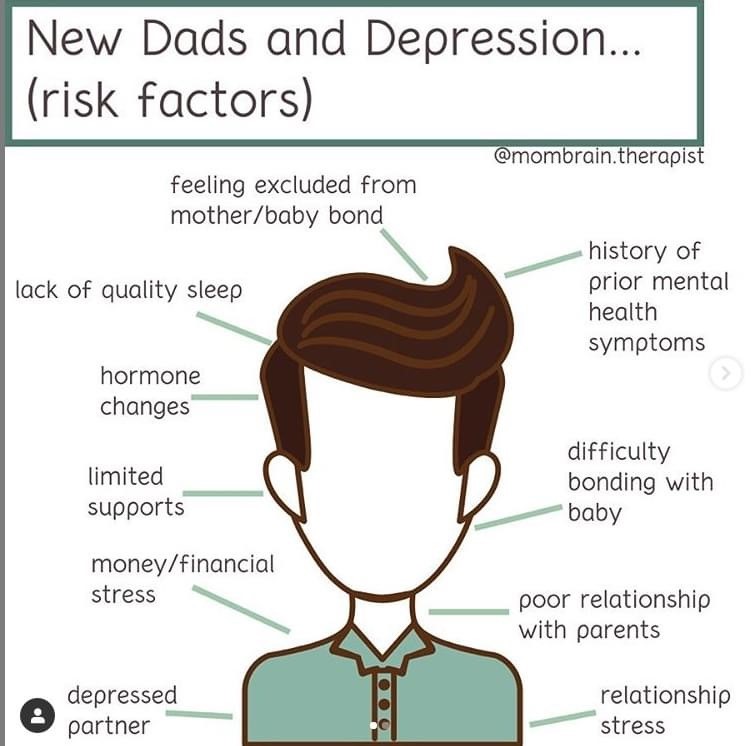We often hear about women experiencing Postnatal Depression after the birth of a child. This illness has been linked to the various hormonal changes that occur after birth. However, we now know it can also be attributed to other factors, such as changes in relationships, identity/roles, and daily routines. As a result of this, men/partners of mums who have had a baby can also be affected by Postnatal Depression. Families tend to live in a new baby bubble for the first two weeks of their child’s life when dads/partners are typically off work. However, when they return to work, reality soon sets in and trying to juggle working and family life can be overwhelming.
Studies show that you are up to 50% more likely to develop depression if your partner is experiencing PND (this can work both ways), and that about 20% of new Dad’s/partners felt completely isolated in the year following the birth of their child. other symptoms of PND can include:
- losing interest or pleasure in activities that were once enjoyed
- feeling tired or having little energy
- feeling low or down a lot of the time
- problems in concentration
- appetite changes
- feeling not a good enough and that your child would be better off without you
- Struggling to bond with baby
- experiencing feelings of jealousy that their partner’s attention is on the baby and not on them
- Men/partners can also feel increased pressure to provide for the family’s finances
These symptoms can be common for all new parents so experiencing some of them for a short period does not necessarily mean you have Postnatal Depression. However, if the symptoms persist for more than two weeks, become harder to manage and start impacting your life, it may be worth discussing your feelings with your GP, midwife, or health visitor.
The recommended treatment for Postnatal Depression whether in the mother, or father, is Cognitive Behavioural Therapy, Counselling, or Interpersonal Therapy (IPT), according to the current NICE guidelines. My blog Counselling or CBT? | Laura Hans Therapy may help you decide between the two options, or click the link below to find out more about IPT. There are also lots of charities and support groups available (see the Tommy's link below).
You can also subscribe to my free guide on Managing Mood, which can be accessed at the bottom of the homepage of my website. This guide is based on a simple but very effective CBT strategy which is proven to achieve good results. It has been designed for you to work through independently and aims to give you a brief taster of how CBT may try and help you address your difficulties. If you wanted to have more specialised support, you can contact me directly and we can discuss this further.
Useful Links
NICE Guidelines For Postnatal Depression In Men
Hold The Mother Podcast Episode 5: Father's Mental Health
